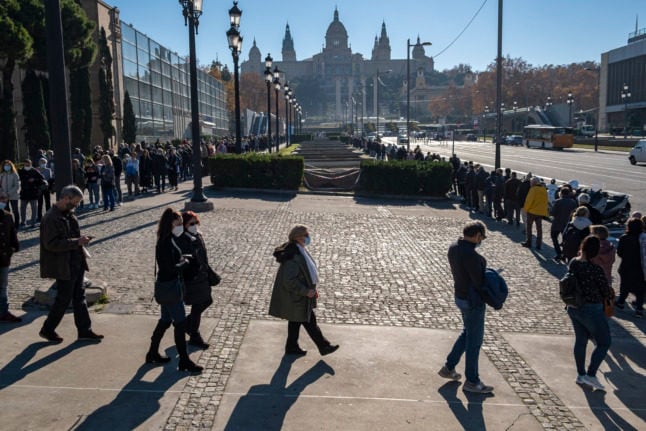In an announcement made on Thursday evening, Germany’s Robert Koch Institute revealed that the three countries – along with Finland, Cyprus and Monaco – would all be upgraded to the high risk category.
The changes mean that anyone arriving from these countries after Christmas will have to fill in a digital entry form and upload proof of vaccination, recovery or a negative test if they are over the age of six.
Unvaccinated people will also have to quarantine for ten days – or five if they can present a negative test on the fifth day of self-isolation.
Since the USA is a non-EU country, only vaccinated people will be allowed to travel from America to Germany while the country remains on the high-risk list.
Omicron has rapidly taken over as the dominant variant in United States, accounting for around 75 percent of confirmed cases as of Wednesday.
However – unlike in the case of the UK – the Robert Koch Institute has opted to place the country on the ‘high risk’ rather than ‘virus variant’ list.
READ ALSO: TRAVEL: Germany adds UK to ‘virus variant’ risk list
Meanwhile, in Spain, Covid infections have been rising rapidly in recent days.
According to the Spanish Ministry of Health, the 7-day incidence of Covid infections stood at 563 per 100,000 people on Thursday evening – almost 80 more than the previous day.
However, since almost 80 percent of the population is fully vaccinated and many people have already received a booster jab, the situation in the hospitals is currently much less dramatic than in Germany.
As of Thursday, around 1,515 were in intensive care in Spain, occupying around 16 percent of the available beds. The regional differences were large, however. While in Extremadura only a two percent of intensive care beds were occupied by Covid patients, in Catalonia it was 32 percent.
Within one day, 82 Covid-related deaths were registered by the authorities.
READ ALSO: EXPLAINED: What are the rules for entering Germany this Christmas and New Year?



 Please whitelist us to continue reading.
Please whitelist us to continue reading.
Member comments